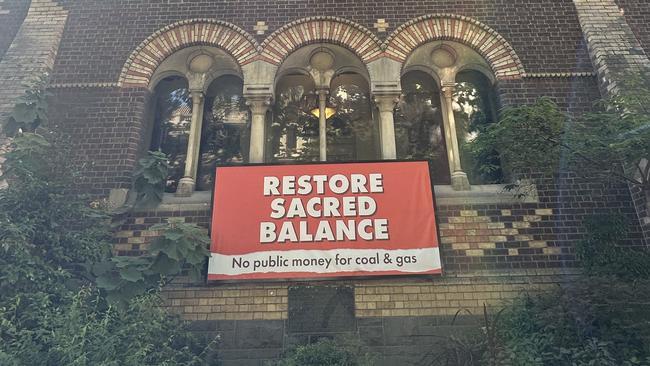
“No public money for coal and gas.”
Walking past the dark, imposing church on Collins Street in Melbourne last week, my first response wasn’t especially godly. Oh, go take a flying leap, you sanctimonious cretins, I thought as I kept walking. It wasn’t until later that night that my train of thought meandered back to that sign.
I wondered about the people who made it. What kind of lives they live. I wondered if they go home and switch on the lights, turn on the heater with the flick of a switch in the dead of a bitter Victorian winter. Perhaps they like long, hot showers, fuelled by gas hot water systems. I suspect they all use a mobile phone, also dependent on the existence of fossil fuels. Did they drive into the city to put that sign up, or take the train? No matter. Neither would be possible without the contribution of coal and gas. I thought about how borderline offensive, not to mention manipulative, intellectually flawed and indefensible, it is to infer that it is God’s will to stop investing in fossil fuels. That doing so would restore some kind of holy alignment on the earth.
I wonder if these people realise that their “sacred balance” is someone else’s prison. Their death sentence. Let me explain.
Here in Australia, the unbridled race towards an unachievable net-zero target by 2030, born of rank ideology, is biting hard.
For families and for some sectors of the economy more than others, the biggest sting has been the crippling increase in the cost of power. It’s energy poverty, and the creep is slow but sure and growing in impact.
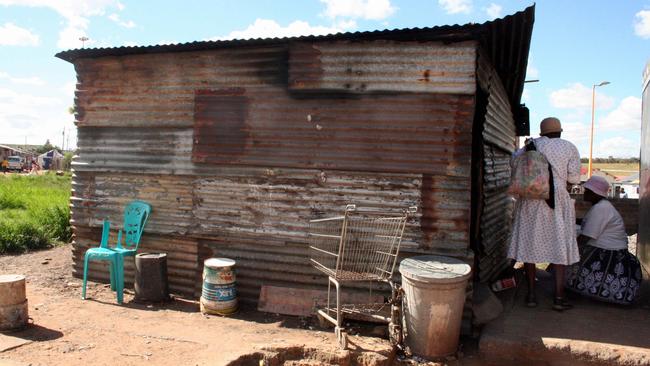
On the other side of the world, energy poverty is life or death and the best-case example of this is in sub-Saharan Africa. There are many others, obviously, but today we’ll focus there.
For context, according to the International Energy Agency, approximately 600 million people (more than half of the population in the region) live without access to electricity. It says there are a billion people globally stuck in the same impoverished revolving door. Most are in Africa and South Asia. They don’t go home and switch on the lights. They don’t flick on the stove to get dinner ready. They burn animal dung, firewood, and kerosene.
The fumes and the smoke cause chronic respiratory disease and various forms of eye disease which research says is (conservatively) responsible for the deaths of more than 1.5 million women and children each year.
Additionally, house fires sparked by cooking on open flames is a leading cause of death throughout the region.
This is just one facet of the horrendous human toll directly linked to a lack of access to the energy the “only renewables” brigade take for granted. There is, of course, a broader developmental weight that continues to crush populations who don’t have the privilege of jumping on hobby horses because they’re too busy trying to exist.
Insufficient access to reliable energy means things like the inability to develop industry, agriculture, manufacturing. This obviously dominoes into lack of opportunity for employment and socio-economic advancement which leaves the poorest countries trapped in disadvantage. All because they can’t access the energy needed to lift them out of poverty. Meanwhile, women, children and infants die from preventable diseases directly linked to a problem nobody in Australia or anyone else who’s calling for a fossil fuel ban, would ever have to consider.
But sure, restore that sacred balance, why don’t you.
It’s the definition of out of sight, out of mind, isn’t it?
Nobody pushing to ban gas exploration and development ever talks about this stuff. They never mention that millions are dying for lack of access to the very thing they want us to believe we don’t need and shouldn’t have. They peddle hysteria, wrap it in emotion, and now invoke the almighty, and to what end?
My position remains unchanged. I sit in the centre, in that I believe we need to have the cleanest, cheapest mix of energy possible. Yes, the climate is changing and will likely continue to change. No, there is no evidence that we’re in an emergency (Messieurs Flannery and Gore say hello, the Great Barrier Reef says, I’m doing fine, come visit).
It’s curious, isn’t it, the aggressive push from certain quarters in the West who rail against oil and gas exploration and development in Africa and other places. Do its citizens not deserve a standard of living commensurate with our own? It’s saying, you don’t deserve to live like we do; and it is outrageous that this position has been tolerated without question for as long as it has.
It’s not just data, but the history of civilisation that tells us that access to reliable power is critical for social and economic development. By extension, for the eradication of systemic disadvantage.
In a study release in June this year, World Development Sustainability shared a study that spelled it out clearly and simply. Improved access to electricity, modern cooking technology and developed fuels significantly reduce infant, under-five and maternal mortality in sub-Saharan Africa. And for those who might suspect a conflict of interest, not a cent of money from the oil and gas industry was involved in the work.
I don’t understand how people can, with a straight face, be so indifferent to the plight of others. To a small degree, I understand that it’s human nature to be focused on issues and problems closer to home – but people are hurting here in our own back yard.
Friends, neighbours, colleagues. Family, too, in many cases. They seem invisible, especially to the activist class. Meanwhile, out the front of a Melbourne church, the privileged seek to invoke heaven to further their cause. I suppose they can afford the luxury of such an elitist position because, among other things, they’re not heating cow dung to make dinner, and their babies won’t die from inhaling the smoke thereof.
Public money should be spent on energy sources that are reliable and affordable, and our energy mix should be diverse and multi-layered. Gas, nuclear, clean coal, renewables. We should be making it easier for private companies to do the same.
That, to me, would restore a balance. Nothing sacred about it, but highly sensible instead.


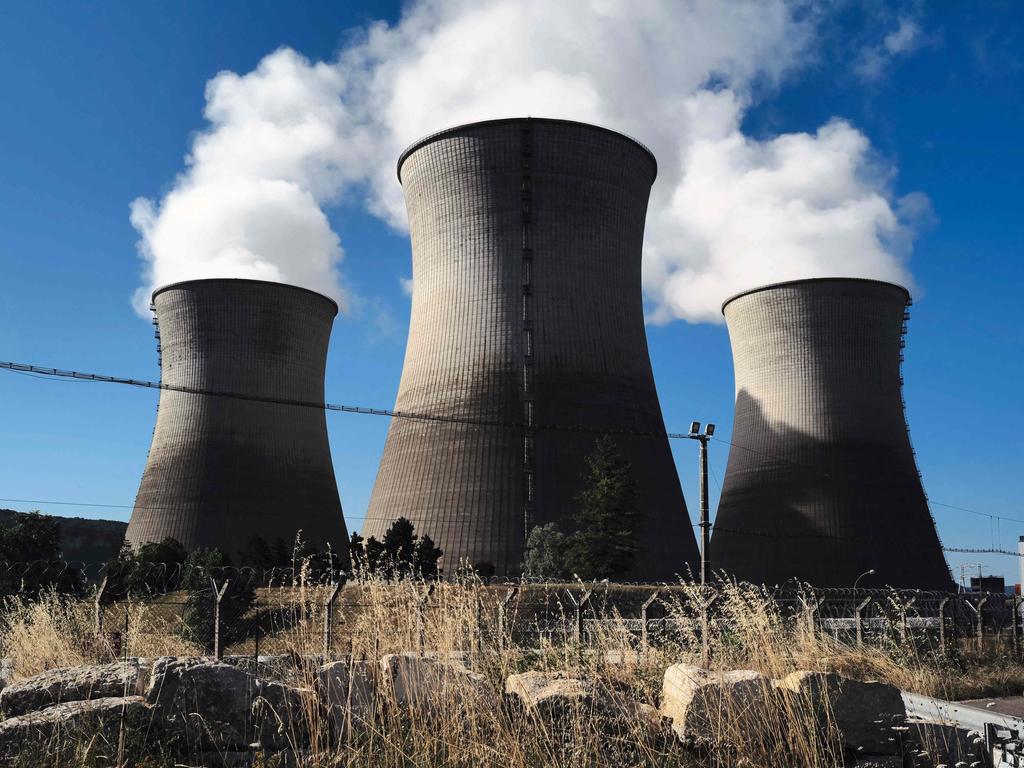
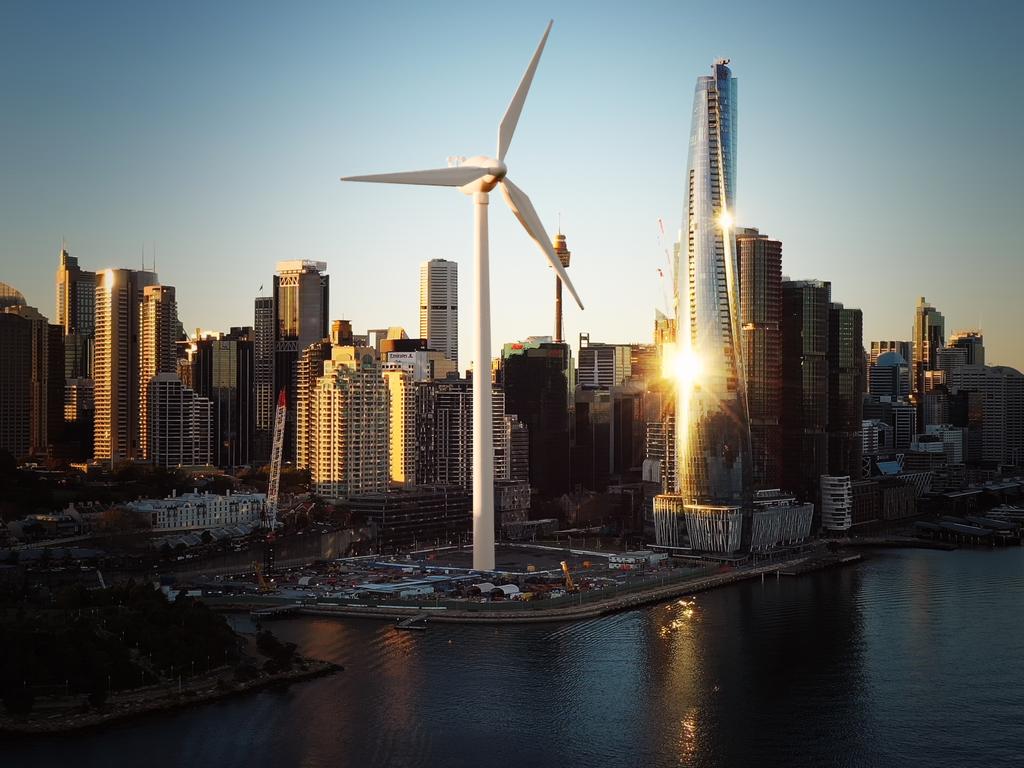
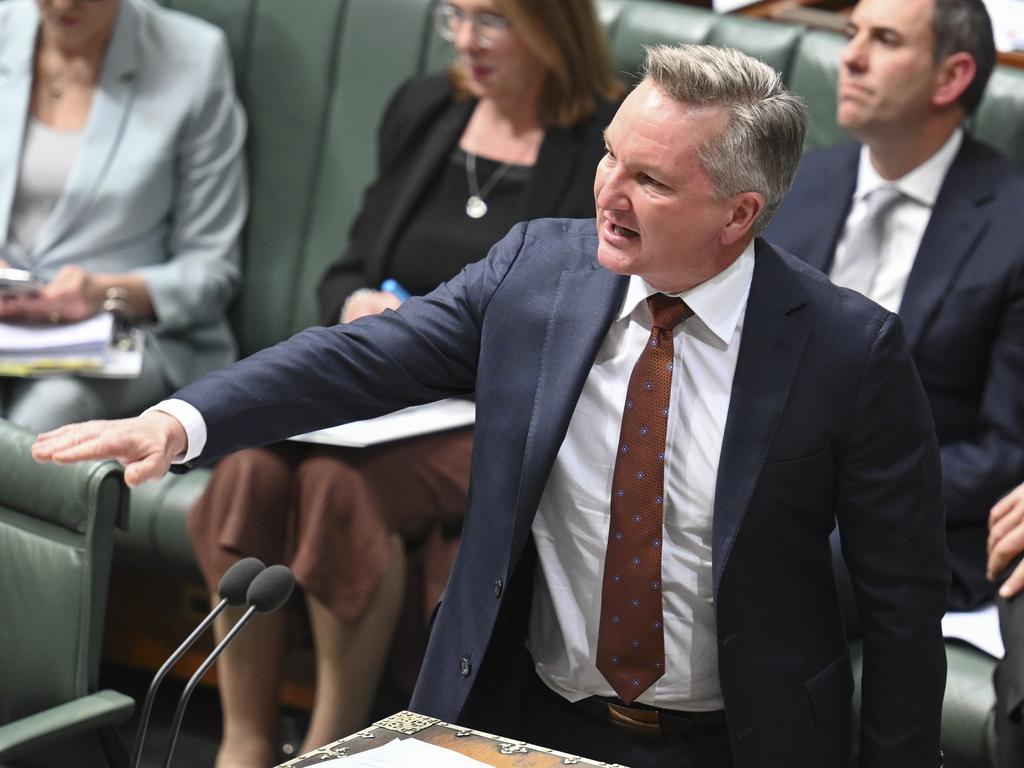


“Restore the sacred balance,” the sign told me.